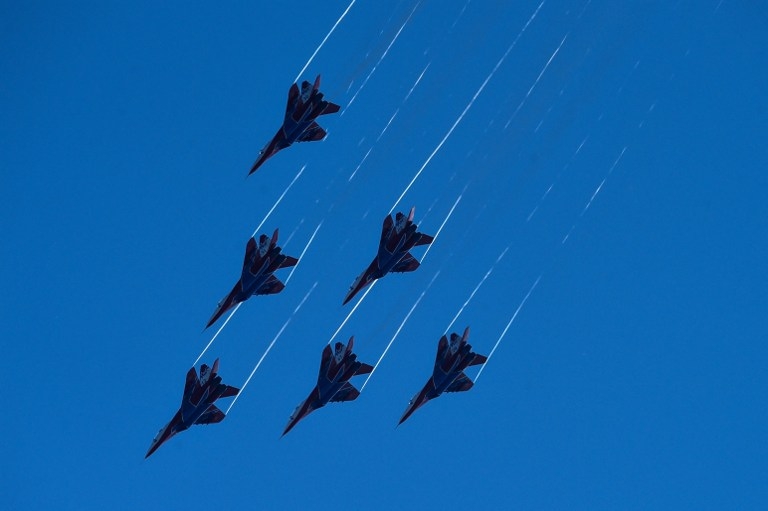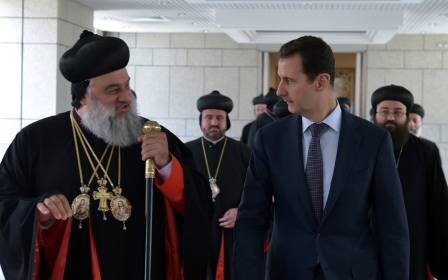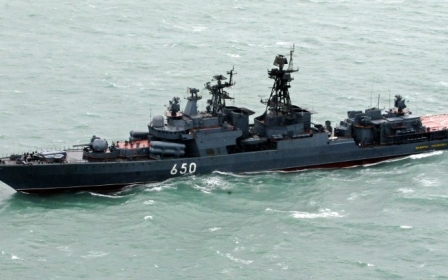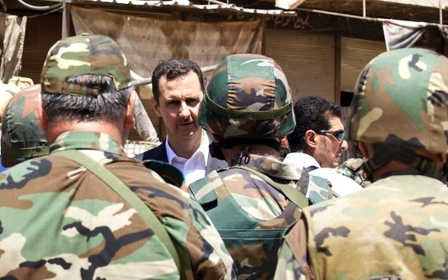NATO chief says alliance 'ready and able' to defend Turkey

NATO's secretary general has said the alliance is prepared to send forces to Turkey to defend against threats on its southern borders, following several violations of Turkish airspace by Russian jets bombing rebels in neighbouring Syria.
Jens Stoltenberg said on Thursday that NATO was "ready and able to defend all allies, including Turkey, against any threats" following more than a week of airstrikes by Russian forces supporting Syria's President Bashar al-Assad, which on Wednesday escalated further with cruise missile strikes launched from the Caspian Sea.
Speaking in Brussels, Stoltenberg said: “In Syria, we have seen a troubling escalation of Russian military activities. We will assess the latest developments and their implications for the security of the alliance. This is particularly relevant in view of the recent violations of NATO's airspace by Russian aircraft.
“NATO has already responded by increasing our capacity, our ability, our preparedness to deploy forces including to the south, including in Turkey.”
Ankara accuses Russian planes of repeatedly violating Turkish airspace while anti-aircraft systems in Syria have "harassed" patrolling Turkish planes by locking on to their signals. Russia said its infractions were due to "bad weather," despite state television stating that conditions in Syria were "perfect for bombing".
Stoltenberg said there needed to be a political solution to the crisis in Syria. "In the long term there is no military solution. There has to be a political solution, a transition," he said. "To support the regime is not a constructive contribution to a peaceful and lasting political solution in Syria."
His comments came before a meeting of defence ministers from NATO's 28-member states in Brussels.
The meeting, the first since June, addressed issues around ongoing efforts to retool NATO and approve two new NATO headquarters in Hungary and Slovakia, and improve the Nato response force to, in Stoltenberg's words, make it "bigger, faster and more capable".
Following the meeting, Stoltenberg stressed that Turkey, which has the second-largest army in NATO, is "a strong ally," and that the alliance's security guarantees are "100 percent rock solid".
Turkey's President Recep Tayip Erdogan was meanwhile on Thursday quoted as saying that his country "can't accept the current situation".
"Russia's explanations on the airspace violations are not convincing," the Turkish newspaper Sabah quoted Erdogan as he flew to Japan for an official visit.
Syrian troops on Wednesday continued to press a ground offensive against rebels in the north-west of the country, backed by Russian air raids. Russia meanwhile said its cruise missile strikes hit targets belonging to Islamic State (IS) in Raqqa.
However, the US military says it believes 90 percent of Russia's air raids have targeted non-IS rebel groups.
Speaking in Brussels, the US ambassador to NATO, Douglas Lute, said on Wednesday that Russia’s build-up in Syria now included a “considerable and growing” naval presence, long-range rockets and a battalion of ground troops backed by Moscow’s most modern tanks.
Moscow had managed a “quite impressive” military deployment over the past week to its Syrian naval base in Tartus and its army base in Latakia, Lute said.
“There is a considerable and growing Russian naval presence in the eastern Mediterranean, more than 10 ships now, which is a bit out of the ordinary,” he told a news briefing.
“The recent Russian reinforcements over the last week or so feature a battalion-size ground force ... There is artillery, there are long-range rocket capabilities, there are air defence capabilities,” Lute said. A battalion is typically made up of about 1,000 soldiers.
A senior Turkish official said 18 Russian warships had passed through the Bosphorus strait at Istanbul en route to Moscow’s Syrian base, amid conflicting reports of Russian ground forces also being deployed.
New MEE newsletter: Jerusalem Dispatch
Sign up to get the latest insights and analysis on Israel-Palestine, alongside Turkey Unpacked and other MEE newsletters
Middle East Eye delivers independent and unrivalled coverage and analysis of the Middle East, North Africa and beyond. To learn more about republishing this content and the associated fees, please fill out this form. More about MEE can be found here.




